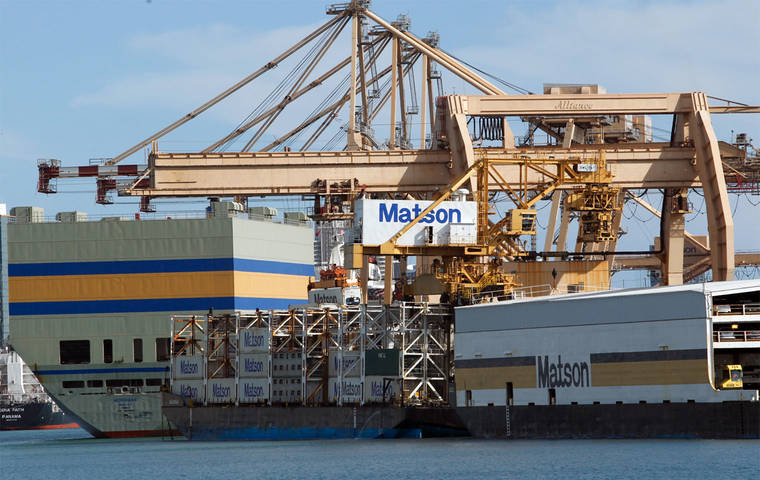HONOLULU — The Trump administration is said to be considering a 10-year waiver to the Jones Act to allow foreign-flagged vessels to deliver natural gas to Puerto Rico — and possibly nationwide — creating the latest dust-up over the controversial century-old maritime law.
Such a lengthy waiver could signal an erosion of the Merchant Marine Act of 1920 — which brings higher costs to U.S. regions that are noncontiguous to the mainland including Hawaii, Alaska, Puerto Rico and Guam.
“The Jones Act industry is going crazy” because with Puerto Rico’s waiver request, “the camel’s nose is under the tent” — a reference to a possible change in the law, said Michael Hansen, president of the Hawaii Shippers’ Council.
The Jones Act requires that maritime transport of cargo between points in the United States be carried by vessels that are U.S. flagged, built in the United States and operated with a predominately American crew.
Under the act, Hansen said, a foreign-flagged ship can call at multiple U.S. ports on a single voyage, discharge foreign import cargo that was loaded at a foreign port, and load export cargo for discharge in a foreign country. But it cannot load domestic cargo at one U.S. port and transport and discharge that domestic cargo at another U.S. port.
The Jones Act was passed to promote a strong merchant marine, provide transportation for commerce, serve in time of war and support a shipyard industrial base, according to the U.S. Government Accountability Office.
However, a 2017 economic analysis by the Mercatus Center at George Mason University found that the law has become a form of protectionism for U.S. shipbuilders.
“Nearly all analytical studies of the Jones Act have found that it imposes net costs on the U.S. economy” and especially on Hawaii, Alaska, Puerto Rico and Guam, the study reported.
The Cato Institute noted that the Jones Act is defended as an inducement for U.S. shipbuilding, but “over the last century, the number of U.S. oceangoing vessels has collapsed, and what remains is an aging remnant, far older than the international norm for shipping.”
Shipping costs for U.S. flagged vessels for oil and gas point to point in the country are approximately four times those of foreign-flagged ships, according to Cato. Only 96 Jones Act-compliant large ships remain, and none can carry bulk liquefied natural gas, the institute said.
Puerto Rico, still recovering from Hurricane Maria in 2017, wants to use foreign-flagged vessels to obtain natural gas from the United States, but because of the Jones Act must get it at higher cost from Trinidad and Tobago, and Russia.
Hawaii has the lowest natural gas consumption in the nation. Hawaii Gas brings in liquid natural gas in highly specialized 40-foot cryogenic shipping containers on board Matson and Pasha Hawaii containerships, Hansen said.
The House Transportation and Infrastructure Committee said in February that it was aware the administration was considering approval of the waiver request for Puerto Rico, and noted that the Jones Act is a “fundamental pillar of U.S. maritime policy” that has “served our nation well.”
In 2015, U.S. Sen. Mazie Hirono spoke out against an amendment that she said would dismantle the Jones Act, which she said helped to shore up national security by providing reliable sealift in times of war and protected American shipbuilders.
Matson in 2009 said as a state completely dependent on ocean transportation, it was particularly important that Hawaii be served by U.S.-flagged carriers.
In November the shipper welcomed the new 850-foot Daniel K. Inouye, the first of four containerships expected for Hawaii service as part of a $1 billion investment.
Asked about the Jones Act waiver request, Matson spokesman Keoni Wagner said, “We would be surprised to see any waivers, given the strong bipartisan support this law has in Congress as well as the level of importance that this administration has placed on supporting American jobs.”



